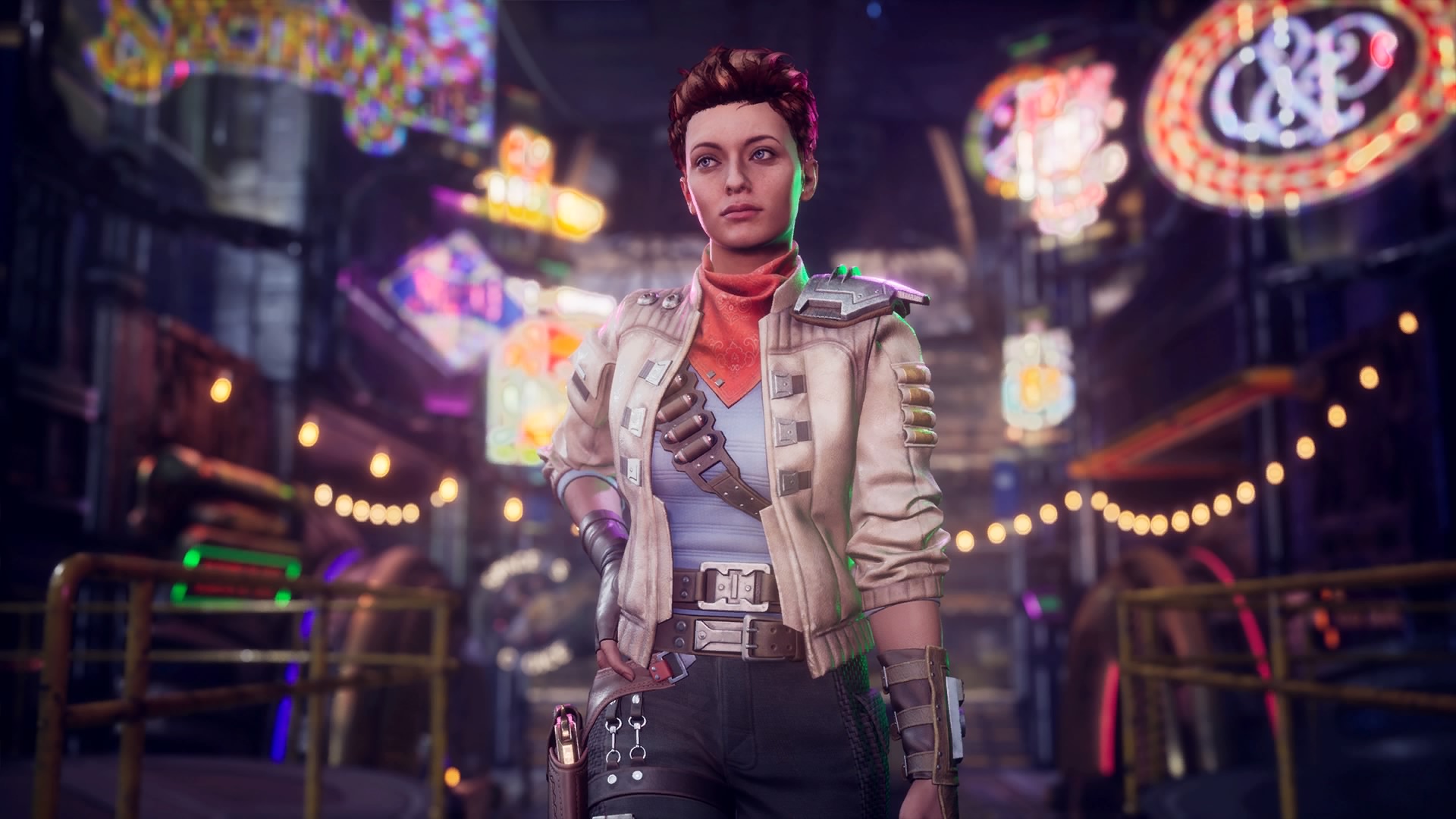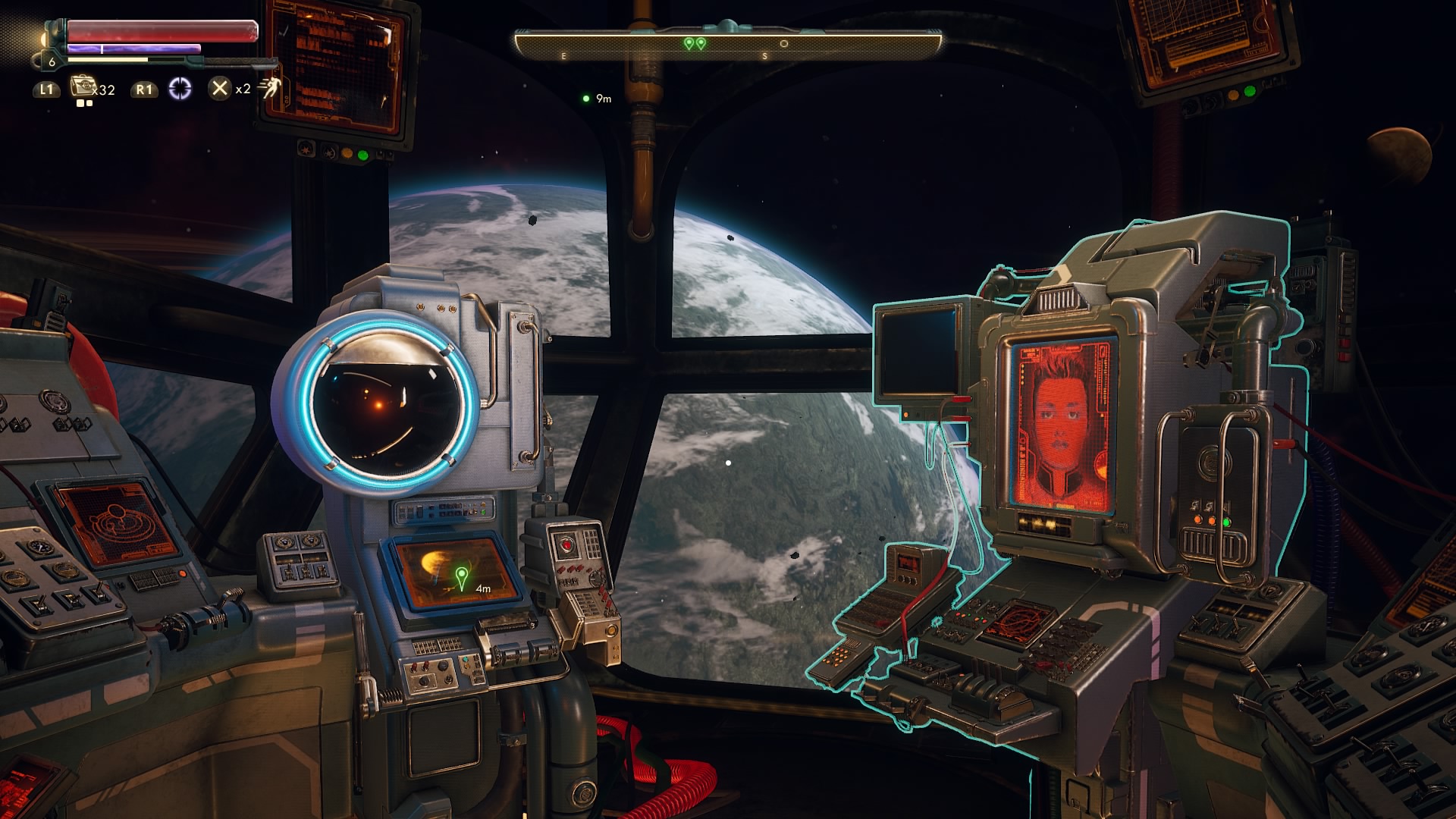The Outer Worlds Review
A solid new Obsidian entry.

The announcement trailer for The Outer Worlds, first shown nearly a year ago, came out swinging. It advertised a game “from the original creators of Fallout” that brought Big Plot Ideas but undercut them with a sense of humor that wasn’t quite Borderlands, but you’d likely see them at the same family reunion. The vistas were fantastical, Buck Rogers sci-fi blended with a heavy dose of the 1950s consumerism nostalgia that modern Fallout regularly trades in. The characters delivered lines and reactions like slapstick comedians, even as they talked about “saving the colony” by “choosing someone now. Right now! Come on!”
When did I realize that game had changed somewhere in the following ten months? About the time I persuaded a quest giver that he utterly lacked a moral compass, and he shot himself after I left the building.

The Outer Worlds will never be mistaken for anything other than an Obsidian game, but the latest entry from the RPG old hands almost plays like a greatest hits. Throughout your time in the Halcyon System, you will collect a handful of motley crew members whose personal stories weave throughout your own main quest.
Along the way, you will meet factions vying for control of this planet or that township. Perhaps you will ingratiate yourself to one in an attempt to tip the scales. Or perhaps you’ll murder everyone and make off with the loot. Combat sports a VATS, er… ‘Tactical Time Dilation system,’ and simple companion abilities that props up otherwise middling gunplay mechanics. There’s experience and levels and perks and…

Like I said, if you’ve played anything from Obsidian’s back catalog in the last 15 years you will find a solid hook or two for enjoying The Outer Worlds. Newer systems like crafting and modifying weapons successfully apply fresh paint to dusty attractions, but it’s the physical world and the stories told within that most ardently attempt to escape the shadow of its predecessors.
Though the Halcyon System’s several planets and moons could provide enough map to make Fallout 4’s post-apocalyptic Boston feel like a chessboard, the studio adopted a less-is-more approach to playable real estate, this time. Players can explore two or three maps on each of the celestial bodies, and every one has clearly defined barriers.

Those could be unscalable mountain ranges or the cylindrical hull of a derelict shuttle; some may be no larger than a few interconnected rooms and corridors. You aren’t being sold a sprawling sandbox of AI creatures and quest givers bumping into you and one another. Outer Worlds has a clearly defined and carefully mapped story to tell.
But that doesn’t mean you can’t stray, a little. Each of the larger hubs provides plenty of side quests and smaller errands you can complete for chips (this world’s currency), gear and reputation. Your crew’s personal missions provide opportunities to learn more about them and whatever motivated them to join you aboard the auspiciously named “Unreliable.” Hedge any expectations to invest 20 hours scouring each zone for its sundry collectibles and secrets; the game does a good job at signposting all content, no matter how small.

The Outer Worlds’ core narrative wants to be a daring rescue story as your main protagonist grows from a pitiful refugee to a walking force of chaos powerful enough to spit in the eyes of corporate overlords and successfully walk away. It wants to sell you on hard choices and far-reaching outcomes as you uncover exactly what cascade of events left humanity’s first stellar colony in the grips of CEOs-turned-despots. It wants you to believe in change at the individual level and that sometimes morally righteous ideology crashes hard against the brutal pragmatism of life in a hostile land.
But the narrative payoffs for the stakes Obsidian establish too often feel like a smarmy shrug accompanied with a “Whaddaya gonna do?”. Players wield a breadth of tools for solving most quest encounters: paint the walls red without a care; sneak in and excise the target with surgical precision; or use guile, guts or good ol’ fashioned threats to change their mind. These always feel like a reward for developing your character’s motivations. What feels less rewarding is the culmination of major quests, which mostly have you choosing which faction you prefer to control the zone after you blast out of their atmosphere.

Without fail, the group I believed wanted the best for the people toiling under the yoke of a parodically hyperbolic late-stage capitalism would reveal some vital flaw or damning footnote in their backstory in an attempt to sour the otherwise clear-cut decision. It wasn’t a twist of poetic irony that the leader of a group of thinly-veiled communists started their religion out of guilt for past misdeeds. It felt like walking back an otherwise wholehearted endorsement of politics their players may have some problems accepting.
Towards the conclusion of the game, the narrative trots out a few named baddies and falls into a more comfortable rhythm of pitting our goals and ambitions against theirs. Unfortunately, lost in that scoping is the common folk featured so prominently in the game’s front half. Obsidian couldn’t find a way to reconcile the rumination on capitalism run amok, along with the very real toll it takes on the most vulnerable, with the bombastic caper their gun mechanics and exaggerated depictions necessitated.

All said, The Outer Worlds is a successful game that will please the Fallout fans, the Bioware Fans, and the CRPG fans. That, in itself, is an accomplishment worth noting. Stories like that of the quest giver who took his own life rather than reap what he had metaphorically sown are infrequent but worth the price of admission. And the cast of secondary characters, from your companions to the sassy ship AI to the frenetic doctor who precipitates your journey, breathe life into the pockets of humanity you visit.
Anyone less discerning with their revolutionary tales might think I’m being harsh. And perhaps I shouldn’t expect so much from a game that named its city of corporate excess Byzantium. But when The Outer Worlds attempts to play with ideas like the logical conclusion of America’s market empire in 2019, I get to be disappointed when the endeavor falls short.
[Reviewed on PS4]
